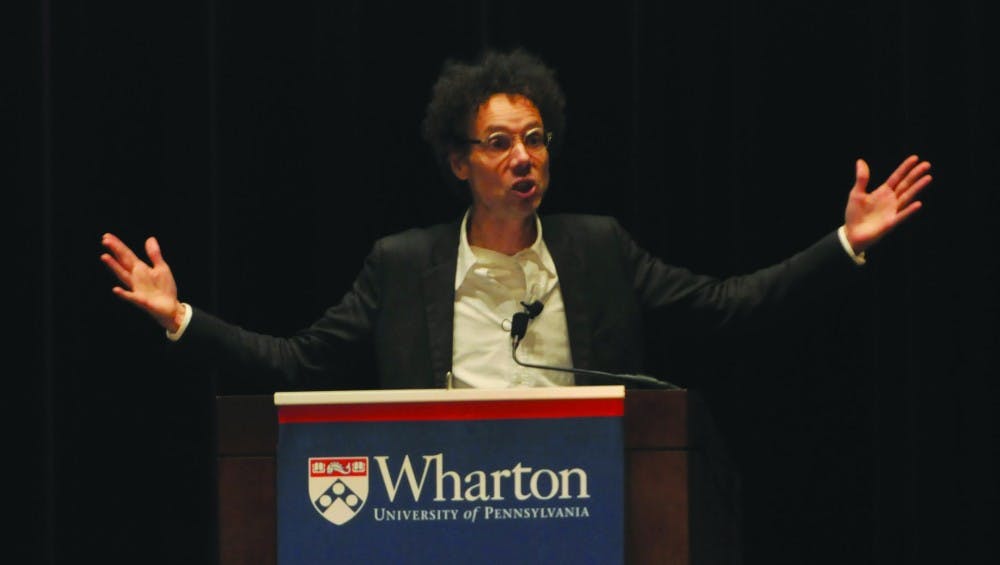
“It would be as if one of the Kardashian sisters picked up stakes, moved to the Middle East and joined Hamas,” bestselling author and journalist Malcolm Gladwell said early in his speech yesterday at Irvine Auditorium.
Gladwell, whose appearance was part of the ongoing Authors@Wharton speaker series, was describing the life of Alva Smith, a 19th-century New York socialite who abandoned a prominent high-society marriage to take up the banner of women’s suffrage.
Smith’s story, the focal point of Gladwell’s talk, was an anecdotal illustration of the primary theme of Gladwell’s most recent book, “David and Goliath: Underdogs, Misfits, and the Art of Battling Giants” — a study of unlikely victories by disadvantaged parties over powerful opponents.
The largely biographical story Gladwell told, heavily laced with his characteristic insightful irreverence, provided the framework for an examination of two competing theories of action disobedient to the law.
The first, which Gladwell called “deterrence theory,” states that “people will engage in disobedience when the benefits of breaking the law are greater than the costs,” he said. The second competing theory states that “what really matters is whether people perceive the law as being administered legitimately.”
Related: Malcolm Gladwell returns to campus Wednesday
Over the course of the talk, Gladwell gave several anecdotal examples supporting this second theory, citing the life of Alva Smith, whose radicalism was born of the repressive nature of her marriage, incidents from the “Troubles” in Northern Ireland and the inverse correlation between a country’s perceived corruption and its citizens’ cooperation with tax collection efforts.
Gladwell framed these examples as proof that underdogs will resist even vastly more powerful forces when they feel they have been treated in a disrespectful and unfair manner. “If you deny people legitimacy,” he said, “one way or another, they will come back and defeat you.”
Gladwell also mentioned in passing his surprise at being invited back to speak this semester, after suggesting in a 2010 speech that the University teach students how to consume alcohol and sparking controversy last year when he advocated boycotting the Penn football team, calling the sport a “violent, stupid game” and condemning it for exposing players to high risk of brain injury.
In his opening sentences, Gladwell expressed his happiness to be back at Penn and praised the school’s “forgiving nature.”
Related: Gladwell’s condemnation of football raises eyebrows
Audience members reacted positively to this year’s speech. “It’s impressive how he’s able to weave everything together and how relatable his stories are,” College sophomore Ben Behrend said.
“He’s brilliant,” agreed Engineering freshman Ahmed Mohield. “It’s fascinating how he ties social science into his storytelling.”
Gladwell ended the talk by taking questions from the audience via Twitter — responding to inquiries about his writing process, his own personal Twitter use, his advice for college students and humorously commenting that if he were ever to become president he “would try to convince America to break up. There’s really no reason to be that big.”
The Daily Pennsylvanian is an independent, student-run newspaper. Please consider making a donation to support the coverage that shapes the University. Your generosity ensures a future of strong journalism at Penn.
DonatePlease note All comments are eligible for publication in The Daily Pennsylvanian.





